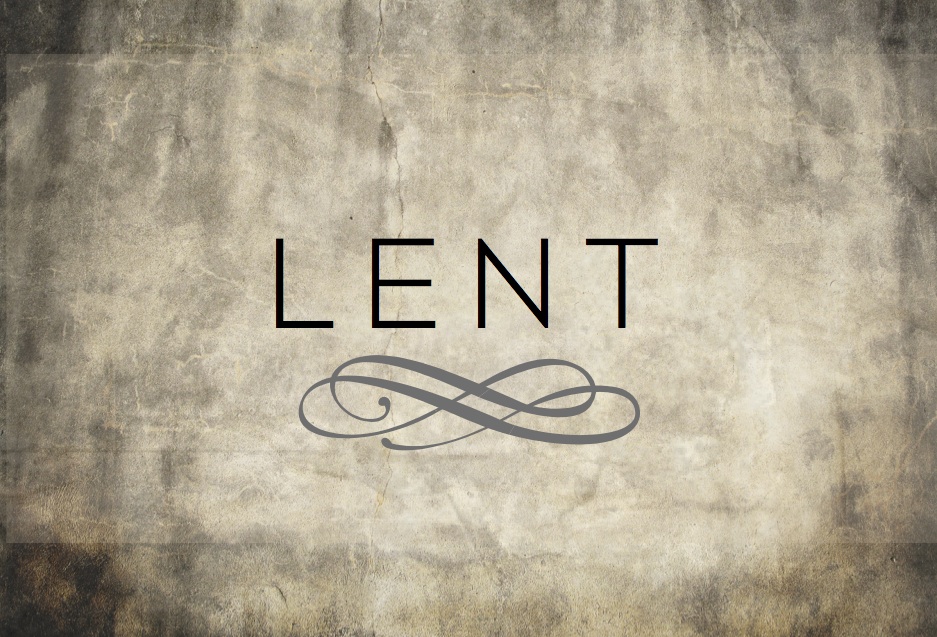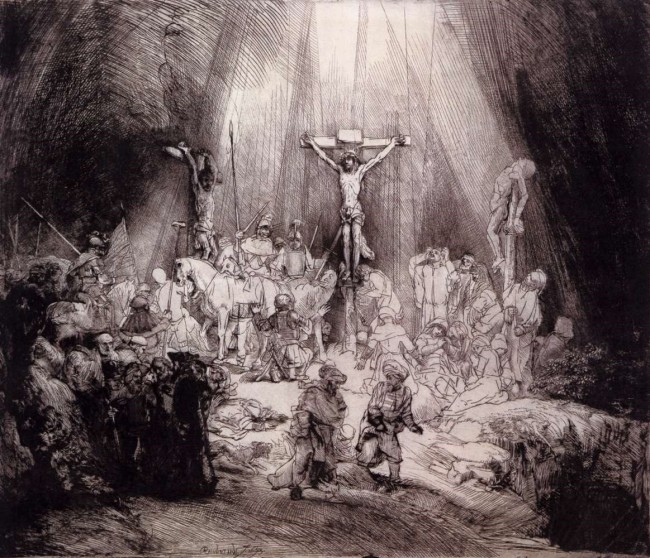Why Lent?
 Growing up I didn’t know much about Lent. To me, it was simply a strange “Catholic” practice. Through the years, I’ve gained a broader understanding of the Body of Christ through the study of Church history and I’ve experienced a deeper expression of prayer and worship through a broader Christian heritage. Most Protestants think of Ash Wednesday and the Lenten season as a “Catholic thing” or even a “pagan” holiday of some sort. The season of Lent appeared after the Council of Nicea (325 A.D.) though some have noted that our earliest known reference of the practice was Ireneus (an early church father who died in 202 A.D.). With so many biblical precedents, it seems that the church would have seized upon the idea of fasting for forty days prior to that. But the early history of Lent is interesting and complex. Even the etymology of the word takes different paths. Known as Tessarakosti in Greek and Quadragesima in Latin, for “the Forty,” it was later referred to as “Lenten” which comes from an Old English word “lencten” meaning “Springtime” or “Spring.” This was derived from a West Germanic word that means “long-days,” because of the approaching Spring, or vernal equinox – literally, “equal night” and equal day. All of this to say, what it’s called has a long, winding history and it has been a long-standing practice of the Church. Understandably, many equate the practice of Lent, or Ash Wednesday, with the debauchery of Mardi Gras and, therefore, want to run as far away from it as possible. But is there something redemptive about this ancient practice that could actually bring us into a deeper walk with Jesus all the way to Resurrection Sunday? Why Lent? And even more, why Lent among believers who have not had the practice as part of their spiritual history? As noted, it is a part of our history and I believe there’s something here to be restored.
Growing up I didn’t know much about Lent. To me, it was simply a strange “Catholic” practice. Through the years, I’ve gained a broader understanding of the Body of Christ through the study of Church history and I’ve experienced a deeper expression of prayer and worship through a broader Christian heritage. Most Protestants think of Ash Wednesday and the Lenten season as a “Catholic thing” or even a “pagan” holiday of some sort. The season of Lent appeared after the Council of Nicea (325 A.D.) though some have noted that our earliest known reference of the practice was Ireneus (an early church father who died in 202 A.D.). With so many biblical precedents, it seems that the church would have seized upon the idea of fasting for forty days prior to that. But the early history of Lent is interesting and complex. Even the etymology of the word takes different paths. Known as Tessarakosti in Greek and Quadragesima in Latin, for “the Forty,” it was later referred to as “Lenten” which comes from an Old English word “lencten” meaning “Springtime” or “Spring.” This was derived from a West Germanic word that means “long-days,” because of the approaching Spring, or vernal equinox – literally, “equal night” and equal day. All of this to say, what it’s called has a long, winding history and it has been a long-standing practice of the Church. Understandably, many equate the practice of Lent, or Ash Wednesday, with the debauchery of Mardi Gras and, therefore, want to run as far away from it as possible. But is there something redemptive about this ancient practice that could actually bring us into a deeper walk with Jesus all the way to Resurrection Sunday? Why Lent? And even more, why Lent among believers who have not had the practice as part of their spiritual history? As noted, it is a part of our history and I believe there’s something here to be restored.
What we’ve sought to do is strip the Lenten season of anything that is not biblical or does not bring our mind’s attention and heart’s affection to Jesus. Instead, maintain a simple and clear focus of prayer, repentance, and personal sacrifice. I’ve heard many sermons on Christ’s instructions to pray as He says, “When you pray…” pray like this. But He also says, “When you fast…” fast like this (Matthew 6:16). He doesn’t say “if” you fast, but “when.” Jesus expected His followers to pray, and at times, fast as a regular part of our spiritual pattern of worship. Could it be that we (in the U.S. in particular) could learn a few things about restraint, about giving up so much of what we want and dying to our selfish need for more? I am certain that prayer and fasting is greatly needed among believers, particularly in the affluent West.
What many have written off as a strange practice (ashes on the forehead, giving up certain foods, etc.) we’ve sought to recapture in its purest biblical sense. It is true that “Ash Wednesday” or “Lent” are not in the Bible. (Of course, neither are Christmas Eve services, Good Friday services, Advent, and so much of what others of us would call “normal.”) You don’t see “Easter Sunday” in the Bible either, because every Sunday is Easter Sunday – or better, Resurrection Sunday for the believer.
“Lent” may not be in the Bible but focused seasons of sacrifice, confession, and repentance clearly are. In the church I grew up in we rushed to Easter Sunday without any preparation of the heart before God. I’ve learned much from the larger Body of Christ as it relates to the spiritual disciplines of solitude, prayer, and fasting. The Lenten or Easter Season should be a focused time of confession and repentance from “Ash Wednesday” to Easter Sunday. Forty Days from Ash Wednesday to Easter Sunday – minus the Sundays leading up to Easter – because the early believers would not fast on Sundays. Later many would go from Ash Wednesday to Maundy Thursday (forty days later). Maundy comes from “mandatum” meaning “mandate” or “command.” Jesus said, “A new commandment (mandatum nuevum) I give to you” (John 13:34). So the Lenten season is a period of intentional prayer and fasting (with a focus on confession, restraint, sacrifice, and repentance). Why forty days? Forty days shows up throughout the Bible – the flood, the spies in Canaan, the Israelites in the wilderness, days before Samson’s deliverance, Goliath taunting Saul’s army, Elijah fleeing Jezebel, days between Jesus’ resurrection and ascension, and on and on. Moses, Elijah, and Jesus (Luke 4:1-2) all fasted for forty days. Forty is not an arbitrary number.
Some practice the placing of ashes on foreheads or wrists signifying the start of a season of confession and repentance. The ashes remind the worshipper of his/her mortality, “Remember that you are dust, and to dust you shall return” (Genesis 3:19) as well as the need to repent of sin in one’s life. It was common for Jews and early believers to mourn the loss of a loved one with “sackcloth and ashes.” Ashes were also a sign of brokenness and repentance of sin. Confession of sin, however, is a private thing between you and God and is not something to be paraded around and seen by everyone.
The practice of fasting is the act of the will through which the follower of Jesus puts forth spiritual control over the flesh (through sacrifice – i.e. not eating, or some other form of self-denial) with a view to a more personal and powerful experience with God in prayer. Fasting involves giving up but is much more about receiving. You give up in order to receive. You die in order to live. The essence of fasting and renewed commitment to Jesus is summed up in Philippians 1:21, “For me, to live is Christ and die is gain.” During this season of restraint, Christ is experienced as more than enough for us in every way. Jesus said, “My food is to do the will of Him who sent me and to finish His work” (John 4:34). During a fast He becomes our “food.” The will of God becomes your sustenance.
Come walk to the cross with the Lord Jesus this Easter season as never before. Let the prayer of David be yours.
“Create in me a clean heart, O God, and renew a right spirit within me.” Psalm 51:10





